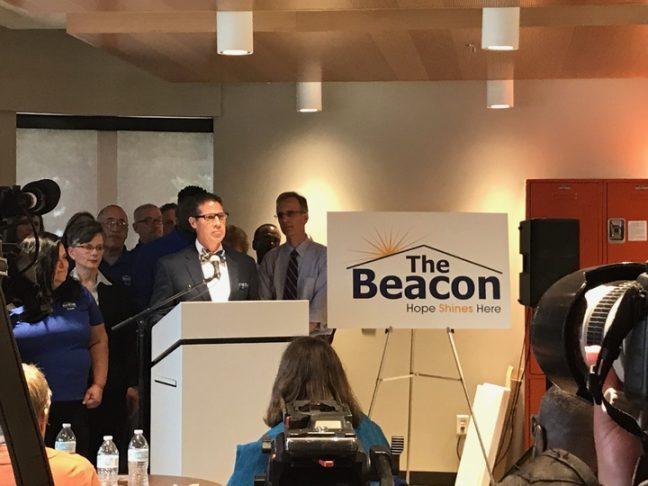As a polar vortex brings subzero temperatures to Madison and with COVID-19 still haunting the country, Madison’s homeless agencies and City and County governments have sheltered all their clients and avoided any outbreaks, according to The Beacon Program Director Kimberly Tesch and The Salvation Army Director Stephen Heck.
Tesch said collaborative efforts between government officials and shelter teams have proven key in supporting Madison’s homeless population.
Multiple agencies and levels of government have fought to combat homelessness, their roles ranging from lending aid on State Street to providing permanent housing for their clients. Whenever an emergency arises, these groups hold an emergency meeting and create a plan, Tesch said.
“The pandemic has affected the entire homeless shelter system. Prior to COVID-19, we averaged 225 people in our doors a day,” Tesch said. “That doesn’t allow for social distancing. So the shelter system and the city got together and restructured.”
Madison Public Library’s 2.1% budget cut to impact houseless individuals, community members
Tesch said The Beacon day shelter reduced its capacity to 125 people per day to permit social distancing. Those who could no longer stay at The Beacon went to The Salvation Army’s East Washington single-women shelter or the city placed them in a hotel.
The city didn’t use hotels to shelter the homeless until the pandemic because hotel rooms don’t suit families well, Heck said.
Using hotels can also be expensive — according to an Aug. 28 blog post from Mayor Satya Rhodes-Conway, the City of Madison was only able to shelter people experiencing homelessness in hotels because of funding from the Federal CARES act.
But Tesch said finding these new strategies to house people kept shelters safe and socially-distanced, and the City of Madison has placed around 100 vulnerable people in hotels.
“We normally run the Washington location as a single-women and family shelter,” Heck said. “When the pandemic hit, we were asked to turn it into a 24/7 single-women shelter. That meant giving them three meals a day, making the location a little homier, so it wasn’t too institutional-y feeling.”
In addition to social distancing, both The Beacon and The Salvation Army adopted a host of COVID-19 precautions. In The Beacon, all occupants must wear a mask and no visitors are allowed and The Salvation Army follows CDC guidelines, Heck and Tesch said.
Thanks to these precautions, Madison’s homeless population has avoided major outbreaks, Heck said.
“So far we’ve been very fortunate — knock on wood. And since it’s been so long, the people we serve are more accustomed to the precautions,” Heck said. “Now you go down there and everybody’s got a mask on. They’re policing themselves.”
The Beacon and The Salvation Army adopted cold-weather protocols in response to the polar vortex. The Beacon opened earlier, monitored its clients for frostbite and requested more hand warmers, coats, hats and mittens.
When it’s extremely cold, The Salvation Army doesn’t turn anyone away, Heck said.
Outreach programs such as Friends of State Street Families patrol the streets, encouraging people to seek shelter and providing them with cold-weather supplies if they do not wish to do so, according to Tesch.
“A lot of people have adapted to live in the cold. They build tents, they have sleeping bags, they have gas lamps,” Tesch said. “They’ve learned the survival techniques to live in the cold.”
While Tesch said she hasn’t noticed an increase in the number of people experiencing homelessness during the pandemic, Heck said the number of people The Salvation Army serves has more than doubled. Despite the increase in traffic, Heck said The Salvation Army has moved single women and families into permanent housing.
State Street businesses suffering pandemic-related losses prepare for winter
Heck said one challenge the pandemic presented was the need to purchase enough personal protective equipment.
Heck said the price of surgical gloves has increased throughout the pandemic. Multiple groups make homemade masks for The Salvation Army, Heck said, but The Salvation Army still does not have PPE in excess.
Fortunately, Dane County Salvation Army secured sufficient funding, despite the pandemic hampering traditional fundraising efforts, Heck said. This year, the organization exceeded their Christmas kettle donation goal — though by only a slim margin, Heck said.
“We were down about 3800 bell-ringing shifts because of the pandemic, so I think people put a little extra more for us. We had people who would normally ring for us mail us a check,” Heck said. “It’s amazing that they had such a connection with what we do.”













